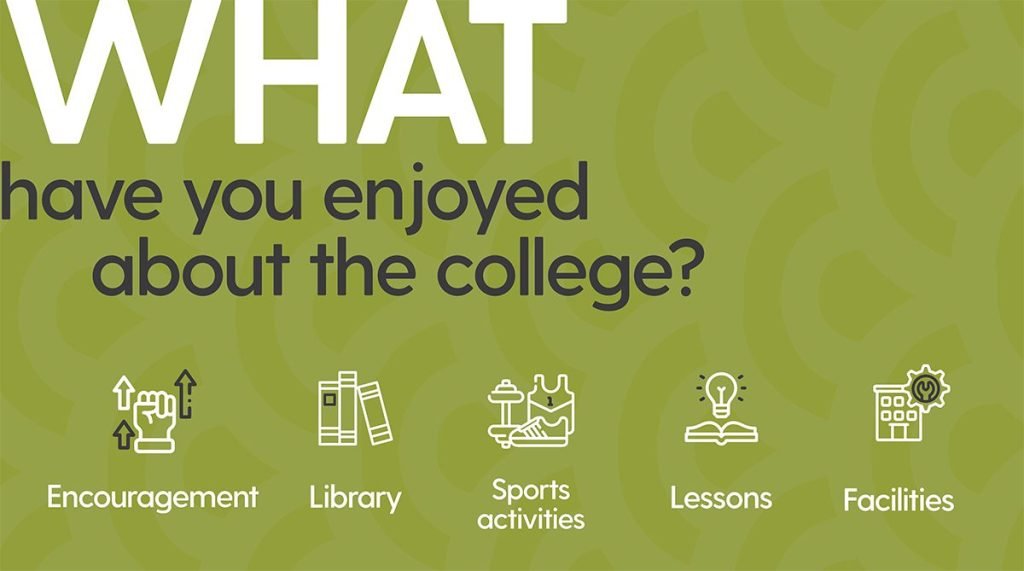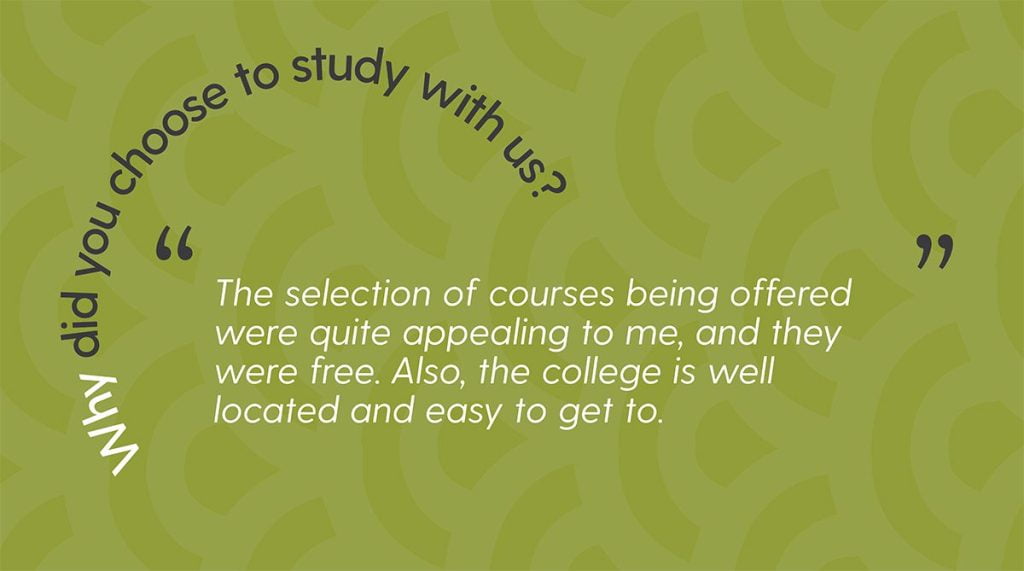About Our Courses (CONEL)
At the College of Haringey, Enfield and North East London, we have a variety of options to give you the skills you need for your future, whether that be going to university, further study or starting your dream career. We offer T Levels, Technical courses, Apprenticeship Training and Higher Education courses – there is something for everyone at CONEL.


Learn more about the types of courses on offer below. Ready to apply? Find out how to apply here!
Technical Courses (Diplomas, Certificates, Awards)
Nearly all students at CONEL study vocational courses because they specialise in areas of learning linked with work that they are interested in. You can build your confidence because you are developing practical skills that could help you secure a job in the future. Answers to assignments may be in written form but it is just as likely they will be in other forms too, such as film clips, project proposals, business plans and structured databases.
Vocational courses are often referred to by the name of the exam board that awards the qualification – for example, BTEC (which stands for Business and Technology Educational Council, which used to issue the award before Edexcel and Pearson, who currently issue them), City & Guilds or UAL (which stands for University of the Arts London).
We are continually developing our vocational courses in response to the needs and skills required by employers. This ensures that you gain maximum benefit from your work while qualifying and that the qualifications stay relevant. Vocational courses are specifically designed to help you get into the workplace, but they also give you UCAS points to be able to study at university. Studying A Levels is another route that will enable you to study at university if you are leaving school; our sister colleges, City and Islington College (CANDI), Westminster Kingsway College (WestKing) both offer A Levels.
They are available at a range of levels, depending on your current level of knowledge and experience:
– Entry Level
If you don’t have any qualifications, studying for an Entry Level qualification is the best place to begin your journey.
Once you’ve completed your course, you’ll have practical skills for work and independent living, and a qualification, which can help you progress to the next level.
– Level 1
If you are new to a subject and would like to improve your basic knowledge, a Level 1 course is the best place to begin.
Once you’ve completed your course, you’ll have skills for work and daily life, work experience, personal development and an introduction to your subject, that will help you progress to a Level 2 course.
– Level 2
Many students go straight to a Level 2 course after achieving four GCSEs at grade 3 or higher; for many subjects, you can enter as a beginner at this stage.
Once you’ve completed your course, you’ll have many transferable skills such as problem-solving and study skills, enabling you to progress to a Level 3 course or an apprenticeship.
– Level 3
A Level 3 qualification is usually studied over 2 years and is the usual route to higher education, offering a vocational equivalent to A Levels. For most subjects, you will need five or more GCSEs at grade 4 or higher, including English Language, or a level 2 qualification.
Once you’ve completed your course, you’ll have many transferable skills, such as independent thinking, problem-solving and business knowledge, enabling you to progress to higher education or the workplace.
– Level 4
A Level 4 qualification is often seen as equivalent to the first year of university-level study. They focus on a particular job or profession and are intended to increase your professional and technical skills, helping you to begin, or progress in, your chosen career.
– Level 5
A Level 5 qualification is often seen as equivalent to the second year of university-level study. They focus on a particular job or profession and are intended to increase your professional and technical skills, helping you to begin, or progress in, your chosen career.
T Levels
T Levels are new technical courses which will follow GCSEs and will be equivalent to 3 A Levels. These 2-year courses have been developed in collaboration with employers and businesses so that the content meets the needs of the industry and prepares you for work. They will offer students a mixture of classroom learning and ‘on-the-job’ experience during an industry placement, providing the knowledge and experience needed to open the door to skilled employment, further study or a higher apprenticeship.
You will spend 80% of your time in the classroom and 20% on a 45-day placement with an employer to give you the knowledge and skills companies look for.
For more information on T Levels, please click here.
Access to Higher Education Diplomas
If you’re aged 19 or older and are looking to study at university, but don’t currently meet the entry requirements for your chosen course, studying an Access to Higher Education Diploma will equip you with the study skills, knowledge, experience and qualifications you need.
Access to Higher Education diplomas have varying entry requirements, depending on the subject area, and are usually taken in one academic year. Most students who study for an Access to HE diploma go on to succeed at university and beyond, with a large number pursuing new careers and seeing changes in their lives that they had never thought possible.
Higher Education – Foundation Degree (FDSC/FDA)
Foundation degrees are the equivalent of two years of a Bachelor’s Degree and are qualifications designed to combine academic study with workplace learning. They focus on a particular job or profession and are intended to increase your professional and technical skills, helping you to begin, or progress in, your chosen career.
The most common foundation degrees are Foundation Degree in Arts (FdA) and Foundation Degree in Science (FdSc). The title of the degree depends on the subject you choose and the qualification’s awarding body.
A foundation degree is a full qualification in its own right; however, you can also use them as entry to a Bachelor’s degree ‘top-up’ programme.
Higher Education – Bachelor’s Degree (BSC/BA)
A degree, also known as a Bachelor’s Degree, is probably the most well-known higher education qualification. Degrees are made up of different modules that combine to make the overall qualification, awarded as an ordinary or honours degree following the completion of a dissertation or research project.
The most common degrees are Bachelor of Arts (BA) and Bachelor of Science (BSc). The title of the degree depends on the subject you choose and the qualification’s awarding body.
A ‘top-up’ degree enables you (with one more year’s study) to achieve a Bachelor’s degree, after completing a foundation degree or HND.
Teacher Training Courses
At CONEL, we also offer some specialist teacher training courses, including CertHE, DipHE and PGCE.
The most well-known of these is the PGCE, which stands for Postgraduate Certificate in Education. This leads to qualified teacher status (QTS), enabling holders to teach in the UK education sector, combining study with teaching practice.
We also offer the CertHE, which stands for Certificate of Higher Education. This is equivalent to one year of full-time study on a degree programme. It can be taken as a standalone qualification but is also often awarded if you leave a degree course early.
We also offer a DipHE, which stands for Diploma of Higher Education. This is equivalent to two years of full-time study on a degree programme. It can be taken as a standalone qualification but is also often awarded if you leave a degree course early.
If you are unsure of which path to take, check out our equivalence table of course levels below.


King’s Cross
London
WC1X 8RA
United Kingdom Contact Us


